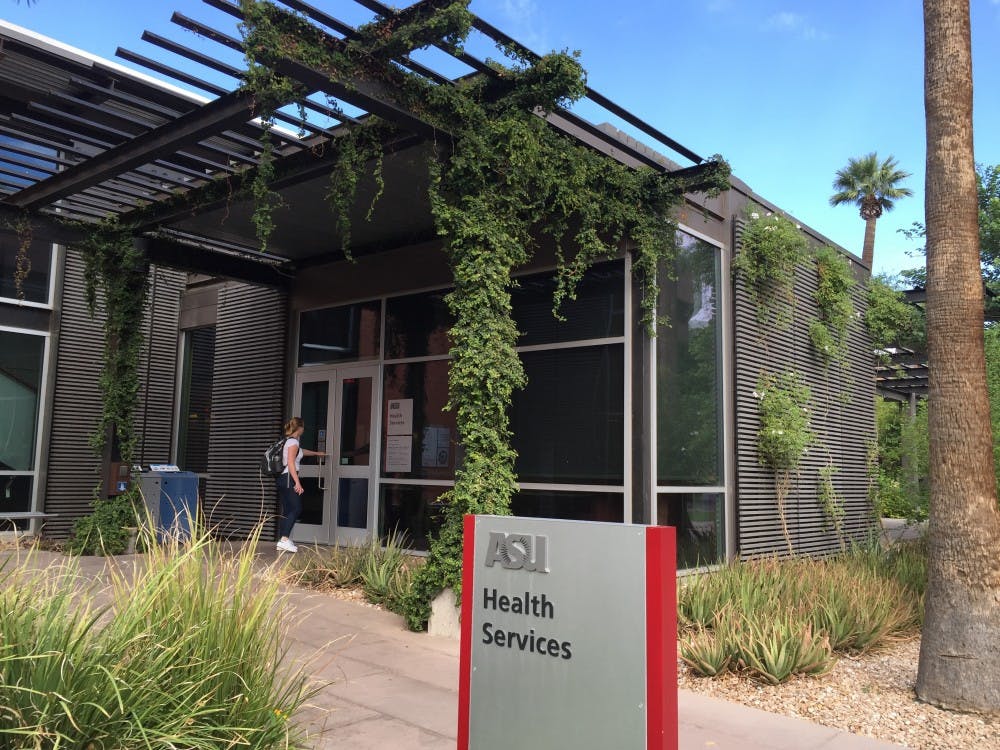Evidence supports that depression and suicidal tendencies are a significant problem for college students nationwide. Approximately one in four students experience depression while in college, and suicide has emerged as the second most common cause of death among college students.
The transition from high school to college is a tough one; college is the first time students are left to fend for themselves, and the added pressures of maintaining health, good grades and social ties is a bit much to balance.
"One of the reasons so many people struggle with the transition to college is that it is near total. It can create quite a bit of excitement and stress,” Aaron Krasnow, Ph.D., associate vice president of ASU's counseling services and health services, said.
Read more: ASU counseling centers, society at large face mental health stigmas
One would expect ASU, with one of the largest student populations in the country, to be incredibly overwhelming for newcomers, thus contributing to a high rate of depression or suicide. However, this is not the case.
ASU’s health and counseling services are effective in promoting accessibility and quality aid to those struggling with depression and/or suicide. Approximately, 9.1 percent of students at ASU reported that they considered attempting suicide while 1.5 percent actually attempted. This number falls below those of other institutions and the national average. At MIT there have been about 12.5 suicides per 100,000 students over the last five years.
"The best treatment for depression or suicidal tendencies is to give people support but to also remind them and support them in choosing things other than suicide to solve their problem,” Krasnow said.
Unfortunately for other colleges in the U.S., a dedication to the students’ mental health is not as high a priority. For example, academically elite universities on the east coast are constantly striving to reduce the high rate of depression that plagues their students, but they take the wrong approach. Namely, MIT struggled with at least four cases of suicide in 2015, with two occurring in the same month.
This jump in the suicide rate was attributed to the rigor of the academic program at this institution, which is most likely the case. Many students that year claimed that they could not achieve the same academic perfection they could in high school.
At ASU, the academics are stressed but not nearly as much, and most would make this claim to support the fact that there are less suicides as a result. For these other universities, where a person is defined by his or her academic achievement, mental well-being is not always considered to be of significant importance.
In fact, some would say that students are now expected to use this time of struggle to “toughen up” and learn to cope with problems. However, this idea discounts that every person’s problems are valid and could lead to legitimate mental health issues in the future.
According to a six-month investigation conducted by NBC's Today, students at various colleges across the country are being kicked off campuses for seeking counseling. Rather than being praised for seeking help, thee students are treated like a “public relations problem.” It is no surprise then that 75 percent of people who need mental aid do not seek it.
ASU, on the other hand, prioritizes its students' well-being over the academic success of the institution and urges them to get help. Although this is a difficult feat for a school with a 23 to 1 ratio of students to faculty, the faculty manages to do it.
ASU’s counseling services are dedicated to making counseling as easy and as affordable as possible, offering online support and plenty of outlets to contact, whether it be for an emergency or for a concerned faculty member or friend.
"There is a multiple pronged approach to treating depression and suicidality," Krasnow said. "One is that we try to make sure that everyone in the environment knows that help is available ... For the counseling services, we not only screen those who come in, but we also provide them with a direct service in terms of psychotherapy or connecting them with other services."
To belong to such a large institution with so many people is daunting, but ASU is aware of this and has taken into account that the transition to college is a tough one and has shaped its health program accordingly.
"In the health center, we screen every single person that comes into the building for anxiety and depression," Krasnow said. "Every year tens of thousands of students come through the health center, which means that tens of thousands of students are being screened for anxiety or depression. We are one of the few Universities who do that on that scale."
Reach the columnist at ghirneis@asu.edu or follow @ghirneise2 on Twitter.
Editor’s note: The opinions presented in this column are the author’s and do not imply any endorsement from The State Press or its editors.
Want to join the conversation? Send an email to opiniondesk.statepress@gmail.com. Keep letters under 300 words and be sure to include your university affiliation. Anonymity will not be granted.
Like The State Press on Facebook and follow @statepress on Twitter.




